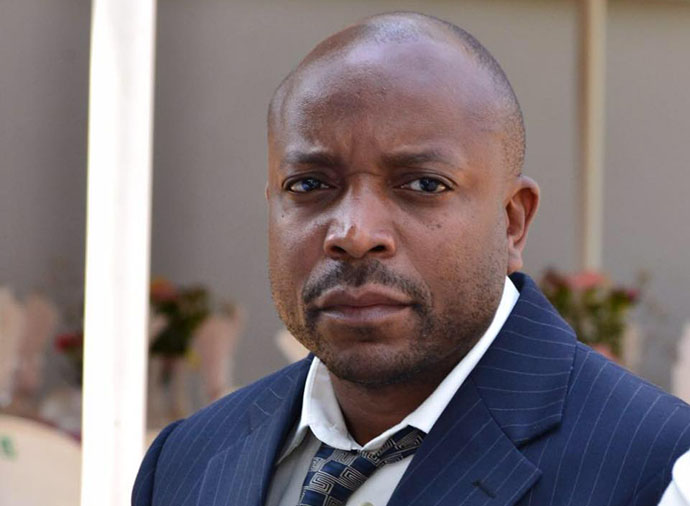By Jacob Kudzayi Mutisi
With the new dispensation in Zimbabwe, the time has come for business executives to enter the political minefield. With the 2018 elections taking place within the next five months the time is now ripe to stop the rot and participate in the growth of the New Zimbabwe.

There is no reason for the business community to keep complaining about the state of the Zimbabwe’s economy, yet they do not participate. The time has come that institutions like Institute of Directors (IOD), Zimbabwe National Chamber of Commerce (ZNCC), Confederation of Zimbabwe Industries (CZI) and Zimbabwe Institution of Engineers (ZIE) should be encouraging their members who have been successful in business to participate in the watershed election of 2018.
They should not worry which political affiliation they belong to, be it Zanu PF, MDC, or just as independent, business communities should be encouraging the likes of Dr Blessing Mudavanhu the former group CEO of BancABC, Ben Rafemoyo the former group CEO of Zimbabwe Electricity Supply Authority, Willard Zireva former group CEO of OK Zimbabwe Limited, Joe Mutizwa former CEO of Delta Corporation Limited Zimbabwe, Luke Ngwerume the former Chief Executive Officer of Old Mutual Zimbabwe and the first black occupant of the office, Anthony Mandiwanza, the long serving group CEO of Dairibord Holding Limited just to name a few.
These are ideal individuals who will use their leadership skills and financial acumen honed at private corporations to solve Zimbabwe’s thorny public problems. Internationally, there is a clear link between national economic frustrations and the flock of chief executives seeking office but that has never been the case in Zimbabwe. Instead of Zimbabwe’s business community using their financial muscle to insulate themselves from the problems facing ordinary people. Zimbabwe is looking for executives who get out of their cocoons and actively participate in politics making them special.
It is a known fact that business people who run for public office naturally maintain that their backgrounds as an asset in helping them understand how to run things, create jobs and work within financial constraints. Zimbabwe’s executives who will make this switch will benefit from the current economic environment and voter anger at traditional politicians. This will be a walk in the park.
Executives who enter the politics arena bring a culture defined by shareholder expectations. Shareholders are unforgiving and demand transparency and accountability. For most executives these demands become a natural way of doing things. Accountability then becomes second nature. They know that every cent counts. All executives who enter politics, they bring private sector networks that our traditional politicians are unlikely to have. Some of our political leaders tends to think that business owes it something rather than viewing it as a partner for development.
Nigel Chanakira, Dr Blessing Mudavanhu, Eng. Ben Rafemoyo, Willard Zireva, Joe Mutizwa, Luke Gwerume can close the gap between government and the private sector. They speak the corporate language of captains of industry. This may help end the investment drought that prevailing in Zimbabwe. In Zimbabwe, there is no precise statistics, but it appears that business leaders are increasingly common among the ranks of would-be political leaders the likes of Supa Mandiwanza, Kazemba (Raymond) Kazemba and Fred Moyo
In the case of Kazemba (Raymond) Kazemba the Zimbabwe’s Minister of Sports, Arts and Culture, we have an entrepreneur who emerged from a middle class background to become one of the most successful Zimbabwe’s enterprenuers. This is a politician who gave back to his community. The fact that he gave, and not take, makes him a far be a better politician. This has made him hugely different from the current crop of the MPs who come to politics with the attitude that Zimbabwe owes them something and have been looting public resources with impunity.
A typical country that has been successful by having business people entering politics is India. Before liberalization of the Indian economy, India had ministers who were close to industrialists but thereafter industrialists began entering politics the political arena. A former Congress MP from Karnataka agrees that the parliament holds a special lure for industrialists. “You can direct policy,” he said. “When a law is drafted, it is the standing committee which vets it. The government system is under its thumb. It can call any bureaucrat. Even as an MP, you have access to the bureaucracy.” Unlike Zimbabwe were decisions are made by those who have never been in industry.
Judging by the previous polls, many voters are growing increasingly frustrated with professional politicians. For Example Supa Mandiwanzira the Minister of Information and Communication Technology and Cyber Security, who once worked as a senior media executive at Mighty Movies, appear to demonstrate that some business people can lead significant change. It’s only the businesspeople who can shake things in today’s politics.






